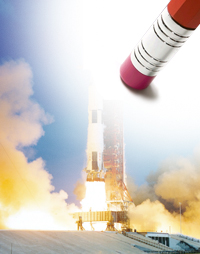What does it take to be called 'scientist'?
 While reviewing early recommendations for new social studies standards, a review team for the Texas State Board of Education decided to remove Neil Armstrong from the ‘science strand’ of their fifth grade social studies textbook.
While reviewing early recommendations for new social studies standards, a review team for the Texas State Board of Education decided to remove Neil Armstrong from the ‘science strand’ of their fifth grade social studies textbook.
Their reasoning? Armstrong wasn’t a scientist.
Now, I understand what this team is trying to do. They wish to keep the focus on learning instead of memorizing names and dates. But come on, he walked on the moon! He’s on one of the shortest short-lists of all time.
Nevertheless, this isn’t what bothers me the most. Saying Armstrong isn’t a scientist is preposterous. If being part of one of the most monumental investigations known to humanity doesn’t make you a scientist- what in the world (or out of the world) does?
I stress to my students that science is for all of us regardless of the careers we choose. As citizens, we all need to be scientists. So many of the issues that our country is struggling with (climate change, health care, energy) have roots in science. How do we explain to our students that they are qualified to join the scientific community and examine issues critically and rationally when others don’t even consider walking on the moon enough to be called ‘scientist’?
Even if Armstrong isn’t technically a scientist (which I disagree with- engineers count in my book) he should still be included as an important part of science since he represents the ultimate citizen scientist.